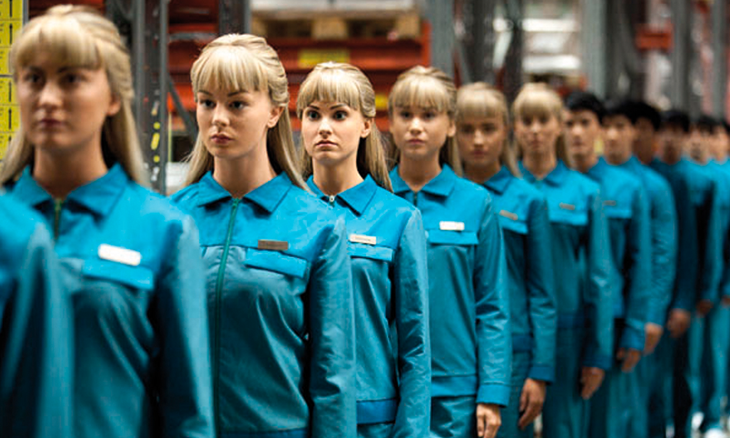 From a common-sense point of view, there are no genuine reasons why the technology and robotics industries cannot be more diverse
From a common-sense point of view, there are no genuine reasons why the technology and robotics industries cannot be more diverseAs more and more research and development focuses on the replacement of human intelligence with machines, the gap between those ‘in’ and those ‘out’ of automation may soon radically increase. Currently, over half of businesses see themselves keeping their employees on board. 28% of those will be redeploying employees to operate the machines that have replaced their function.
Since the introduction of the first robotic arms onto assembly lines in the 1960s, people have feared that robots will increasingly replace humans and jobs will be lost. As manufacturers face efficiency challenges there is a growing need to increase productivity, or output per hour worked. Either workers can work faster, harder, and smarter – or companies can replace humans with machines, as they’ve been doing since the advent of the industrial age.
Attention Recruiters
See Live Jobs on SplitFee.org – Don’t Miss Out
It’s FREE if you Join Now
Recently, the Financial Times warned of the unprecedented flat-lining of productivity in the UK since 2007. This is a cause for concern – there hasn’t been an extended period without productivity growth in this country since the Industrial Revolution. One of the reasons for the slowdown in productivity is the ongoing wave of baby boomer retirements. When an employee with 30 or 40 years of experience leaves the workplace, a business loses an asset that often can’t be replaced.
With the baby boomers continuing to leave, more and more companies are going to replace such workers with machines over the next decade.
This substitution trend is accelerating, driven by advances in robotics. Industrial robots are becoming more affordable at the same time that they’re becoming more intelligent, smaller, nimbler, and more adaptable and energy efficient. This speed of technological change has led Google’s director of engineering, Ray Kurzwell, to estimate that robots will, “reach human levels of intelligence by 2029”.
Today, on average, industrial robots perform about 10% of all manufacturing tasks. Industry experts predict that this will increase to a quarter of all tasks within the next ten years. By 2025, the productivity gains stemming directly from the increased use of industrial robots are estimated to range between 10% and 30%, depending on the country and industry, giving certain companies and countries a competitive advantage.
With prices continuing to fall and robots becoming more adaptable and user-friendly, SME’s are getting in on the action as well. Robots are cost effective in other ways too. They don’t need lighting, heat, air conditioning, supervision, or food. So what we’re seeing, and will see more of in the future, are “lights out” manufacturing plants, operating largely unsupervised for days at a time, resulting in massive cost and energy savings. Couple this with improvements in the robotic systems themselves – better vision sensors, better gripping systems, easier-to-program computer technology – and the business case for robots becomes compelling.
Robots and E&M recruitment
The first robots might have been installed in factories in the 1960s, but we are only now truly entering the golden age of robotics. What does all this mean for manufacturing talent right now? We are currently experiencing a well publicised shortage of engineering and manufacturing professionals across all sectors. With automation already at the forefront, we are specifically seeing huge demand for automation engineers, project managers, maintenance engineers, lean experts and health and safety professionals as well as engineering managers with other specialist skills. As for the future, robotics and automation will open doors to new industries and generate new roles requiring creativity, judgment, empathy and a thirst for innovation – human skills which robots can’t yet replicate.
By Simon Owens, Operating Director at Michael Page Engineering & Manufacturing
Here’s the COMPLETE set of Accredited Recruitment & HR courses








